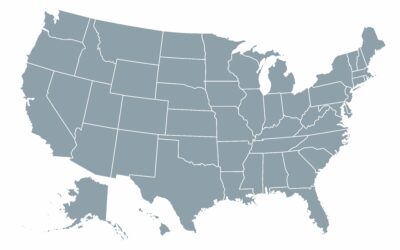Our Blogs
Why Trusts Are Important Estate Planning Tools
Estate planning involves creating a plan for where – and to whom – your assets will go upon your death. The process can include making a will, designating which of your loved ones should receive your retirement accounts and life insurance policies,...
Blended Families and Wills in Estate Planning
Today, 16 percent of children in the United States live in blended families, according to U.S. Census data. This can include those living in households that have a stepparent, stepsibling, or half-sibling. In many cases, stepchildren receive the...
Gift of Home Equity: What It Is and How it Works
We are living through what’s been called the largest intergenerational wealth transfer in history. Tens of trillions of dollars are set to change hands between older and younger Americans over the next 20 years. More and more elders are choosing to...
7 Things to Know About Living Wills
What would happen if you became seriously ill or injured and were no longer able to make your health care decisions? People of any age can lose capacity. They may have an accident, suffer a serious injury, or develop a disability at any point. A...
Probate Process: A General Timeline
Probate is the legal process of formally recognizing a will after a person dies, naming or validating an executor to administer the estate, and distributing assets to intended beneficiaries. It also requires paying the decedent’s outstanding...
High School Graduation: A Good Time for Financial Planning
Whether your child is graduating with their high school diploma or completing higher education, it’s important to help them plan for their financial future. You want to set a strong foundation for long-term financial stability by broadening their...
What You Should Know About Prepaid Funeral Plans
How Much Are Funeral Costs in the United States? Funerals rank among the most expensive purchases many consumers will ever make. As of 2023, the median cost of a traditional funeral, with casket and burial, was $8,300. The average cost varies...
How to Get a Death Certificate After a Loved One Dies
The most recent data from the National Center for Health Statistics (NCHS) indicates more than 3,400,000 deaths in the United States in 2021. When someone dies, the local government issues a formal document known as a death certificate. The death...
Be Aware of the Dangers of Joint Accounts
Joint bank accounts serve as a useful estate planning tool for passing money to loved ones outside of probate and planning for disability. But while they can achieve these goals, and are useful in certain circumstances, joint accounts also present...
Securely Storing Your Legal Documents
Among your key estate planning documents are your will, living wills, powers of attorney, and medical directives. Securing these somewhere your survivors can easily access them is crucial. Consider storing other information, like birth...
Financial Planning: High-Net-Worth Wealth Transfer to Heirs
The great wealth transfer is underway in America. Through 2045, Baby Boomers will pass down assets worth roughly $84 trillion to Gen Z, Millennials, and Gen X. What constitutes a high-net-worth (HNW) inheritance? In the United States, that number...
AI and Obituaries: Did AI Write This Death Announcement?
For many, obituaries play an essential role in mourning. They notify community members of a person’s passing and pay tribute to their life. While the practice of sharing death notices originated in ancient Rome, modern obituaries developed in the...
Navigating Disputes in Probate Court
When someone passes away, the probate process ensures that the deceased’s estate fulfills its debts and that the heirs receive their assets. The deceased’s will dictates how to settle and distribute their assets and debts. (If no will exists,...
A Useless Power of Attorney: Avoid Free Legal Documents
A power of attorney designates a trusted individual to make decisions or conduct transactions on your behalf. They could be related to personal finances, business operations, or medical needs and used for a single immediate purpose or an ongoing...
40% of People Say They Don’t Have Enough to Make a Will
Four in 10 people believe they do not have enough assets to make a will, according to Caring.com’s 2024 Wills and Estate Planning Study, which surveyed more than 2,400 individuals. This statistic reflects a common misconception about estate...
What Is MAID (Medical Aid-in-Dying)?
Many people seek to avoid situations in which life is unnecessarily prolonged. Subsisting on expensive life-support long beyond when treatment might improve one's quality of life can be cruel. With advance directives, including living wills and...
A Seniors Guide to Estate Planning
Most older adults acknowledge that estate planning is essential. Yet, nearly half of Americans age 55 or older do not have a will, and even fewer have designated powers of attorney, a living will, or health care directives. These...
New Year’s Resolution: Get That Estate Plan Done
Visiting your attorney to get your estate plan done is one New Year's resolution that you should definitely keep. None of us knows whether or when we may find ourselves seriously injured or sick. But if it does happen, you may not be able to speak...
Report: The Current and Future State of Estate Planning
Over the next two decades, experts foresee Baby Boomer households transferring more than $84 trillion in generational wealth. Amid challenging economic times, it is more important than ever to protect your assets for yourself and your loved ones....
Baby Boomers: Inheritance Conversations With Your Children
Not talking to your adult children about their inheritance comes at a cost. Do what you can to manage expectations for adult children as they forge their financial plans. Knowing their general inheritance situation can change their decision-making...
Should My End-of-Life Care Plan Include a Death Doula?
Death doulas are available for people who are approaching the end of their lives, whether it is because of advanced age or illness. The service these professionals provide can help families and individuals who need additional supportive care....
Using a QTIP Trust in Estate Planning
Estate planning is crucial when managing valuable assets and ensuring the smooth transfer of wealth to future generations. There are various types of estate planning tools available, some of which may be more useful depending on your circumstances....
2024 Annual Gift and Estate Tax Exemption Adjustments
With the arrival of the new year, revisions to the annual gift tax and estate tax exclusions will be going into effect, as recently announced by the Internal Revenue Service (IRS). Gift Tax Exemption for 2024 Every calendar year, you can gift up to...
What to Know About Creating a Living Will
Creating a living will ensures your future health care decisions and plans are respected. A living will, or advance directive, is a legal document outlining medical treatment preferences and end-of-life care if you can’t communicate or make...
6 Ways the Sandwich Generation Can Plan for The Future
Anyone experiencing the struggle of simultaneously caring for children and aging parents is part of the sandwich generation. Although “generation” is part of the phrase, it doesn’t refer to people born at a specific time. Typically, these family...
What Does Incapacitated Mean in Elder Law & Estate Planning?
When working with an attorney to prepare for your future and address the challenges associated with aging, you will likely come across the term “incapacitated.” Incapacitated Definition Someone who is incapacitated cannot make personal decisions or...
Is Your Financial Information in Order?
Preparing and organizing your financial information for when you are no longer capable will bring peace of mind to you today. At the same time, it may relieve your loved ones’ burden in the future. You’ll ensure proper management of your financial...
Reducing the Risk of a Family Fight in Probate Court
Many family circumstances can increase the risk of probate litigation. High-risk factors that often bring about probate litigation can include sibling rivalry, second marriages without a prenuptial agreement, and dysfunctional family dynamics....
Estate Planning for Surviving Spouses
After losing a spouse or longtime partner, it’s difficult to look past your grief. However, it’s crucial to understand the important and timely decisions you must make regarding your finances and personal estate plan. Estate planning is an ongoing...
Ashes to Ashes, or Ashes to Soil? Is Human Composting Real?
Outlining your wishes for burial and funeral arrangements can be something you include in your estate plan. And though it may sound jarring, human composting is in fact a death care alternative that is increasing in popularity. As more people look...
What Is a Gun Trust?: Estate Planning Q&A
According to Pew Research, 30 percent of adults in the United States report owning a firearm. Gun sales have risen in recent years, particularly during the Coronavirus pandemic. While many reported having weapons for protection and hunting, 6...
Mitigating the Impacts: Sunsetting the Tax Cuts and Jobs Act
The Tax Cuts and Jobs Act (TCJA) took effect on Jan. 1, 2018, and impacted personal income taxes, small businesses, estate tax rules, capital gains rules, special needs accounts, and much more. The TCJA is scheduled to sunset at the end of 2025....
Inherited Retirement Accounts: Minimizing Tax Consequences
The Setting Every Community Up for Retirement Enhancement (SECURE) Act, which went into effect in 2020, changed how beneficiaries of inherited retirement accounts must withdraw these funds. The Act’s passage made it more difficult for individuals...
Innovative Long-Term Care Housing Solutions for Seniors
The population of seniors over 65 is expected to increase exponentially over the next decade. A study by the Office of Policy Development and Research exposed the country’s unpreparedness for housing the aged population. America has three major...
Home Health Services Underutilized by Seniors, Study Shows
Health Affairs estimates that 4 million older adults can only leave their homes with assistance, making accessing care challenging. The Centers for Disease Control and Prevention reports that 1.3 million Americans receive care in nursing homes....
Medicare Extra Help Program Set to Expand in 2024
Seniors and disabled citizens will receive more access to the Medicare Extra Help Program as of the beginning of 2024, the federal government announced. This expansion of benefits could enable up to 3 million people to reduce their prescription...
The Consequences of Not Paying Your Property Taxes
When Geraldine Tyler, age 94, relocated to a senior community, she stopped paying property taxes on her home. After the property was foreclosed on, the county where Tyler’s home was located sold the property for $40,000 to recover about $15,000 in...
Some States Testing Out Medicaid Coverage for Healthy Food
Under a federal pilot program, a number of states are using Medicaid funds to cover healthy food costs for Medicaid recipients. Ultimately, the trial program seeks to determine whether nutrition support can help prevent and manage certain chronic...
On Medicare? What You’ll Pay for Now That the PHE Has Ended
The Biden administration officially ended the COVID-19 Public Health Emergency on May 11, 2023. Certain policies that were implemented in early 2020 during the public health emergency will now expire. As a result, seniors are among those who may...
An Epidemic: Substance Abuse a Growing Problem Among Seniors
The United States population of aging adults has grown exponentially over the past decade. According to projections published by the U.S. Census Bureau, the number of Americans aged 60 and older increased by 34 percent from 55.7 million to 74.6...
Affordable Housing Options for Low-Income Older Adults
Safe housing that meets older adults’ needs is essential to healthy aging in communities. Many seniors with low, fixed incomes struggle to balance housing expenses with the costs of health care, transportation, and groceries. Finding inexpensive,...
Do You Need a Trust?: Estate Planning Q&A
According to the 2023 Wills and Estate Planning Survey by Caring.com, only 34 percent of Americans have an estate plan. The primary reasons respondents gave for not participating in estate planning are: Procrastination Believing they need more...
Should I Explore Qualified Longevity Annuity Contracts?
In late 2022, the federal government passed legislation known as the SECURE 2.0 Act. Provisions in this bill have made it easier for people to fund certain annuities that can delay taxes on their retirement funds until the age of 85. First, What Is...
Why You Should Designate Beneficiaries
According to WealthCounsel, over a third of Americans have experienced or witnessed familial conflict when someone dies without an estate plan. While most people believe having an estate plan is important, only a third have a plan in place,...
Limited Power of Attorney in Estate Planning
A power of attorney (POA) is a document that authorizes one or more parties (known as the “agent” or “attorney-in-fact”) to act on behalf of a person (referred to as the “principal”). Most powers of attorney documents are guided by state law, which...
Don’t Wait Until You’re Sick to Create an Estate Plan
In the wake of the pandemic, rising inflation, mass shooting tragedies, and other events, more people recognize that they need to plan for the future. Yet while financial planning has been at the top of many Americans’ minds, a vast majority of...
When Should I Include a Pour Over Will in My Estate Plan?
In creating an estate plan, you are proactively taking steps to ensure that your assets will be distributed according to your wishes in the wake of your death. One tool available to you in estate planning is known as a trust. There are numerous...
What Does Having Power of Attorney With Dual Agents Mean?
A power of attorney is among one of the most important incapacity planning documents you can have. It designates someone you trust with taking care of your affairs if you become unable to do so. In a power of attorney, you give one or more trusted...
Does Medicaid Cover Self-Measured Blood Pressure?
According to the American Heart Association, high blood pressure contributes to many significant health conditions, including heart attack, heart failure, stroke, and kidney failure. In the United States, 121.5 million adults suffer from high blood...
What Is Respite Care? Can It Help With Caregiver Burnout?
It is easy to burn out when you are responsible for providing full-time care to an aging or disabled loved one. In some cases, caregiver burnout can result in resentment toward the individual they care for, despite their love for them. The fact is,...
Becoming a Family Caregiver for an Ailing Loved One
Taking on the responsibility of providing full-time care for an aging or disabled loved one can be a rewarding experience. Being a primary caregiver helps you rest assured that your loved one is receiving compassionate care from someone who will go...
Aging Care: 6 Tips for Caring for Elderly Parents
Many adult children wonder what their aging parents may need and how can they can help provide it for them. You may constantly worry about your parents or other older loved ones, especially if you live far away from them. You can, however, take...
Medicaid Expansion: What Might It Mean for You?
As of late 2022, more than 84 million people were enrolled in Medicaid — a number that has steadily increased in recent years. Amid the pandemic, total enrollees climbed by 20 million people from 2020 to 2022 alone. Meanwhile, the debate among...
This Tax Season, Seniors Can Get Free Assistance
When it comes to filing your 2022 federal tax return for the 2023 tax season, you may be able to access several forms of assistance for free. Filing Online: IRS Free File In January 2023, the Internal Revenue Service (IRS)’s Free File service...
What Is IRMAA and How Does It Affect My Medicare Premiums?
As we near retirement, we may assume that once Medicare kicks in, our medical insurance premiums will be fixed. However, many people may not realize that there are special rules regarding how much they pay for Medicare Parts B and D if they...
Deducting Long-Term Care Insurance Premiums in 2023
Are you a taxpayer who has purchased long-term care insurance (LTCI)? Take note of your policy details and your premium amount, as you may be able to deduct the cost – or at least part of it – from your 2023 income. If your total eligible medical...
Does Medicaid Cover Self-Measured Blood Pressure?
According to the American Heart Association, high blood pressure contributes to many significant health conditions, including heart attack, heart failure, stroke, and kidney failure. In the United States, 121.5 million adults suffer from high blood...
What Is Hospice Care at Home?
Hospice care is a type of health care that patients with terminally ill conditions rely on at the end of their lives. This type of care focuses on pain management and emotional, spiritual, and familial support for patients nearing the end of their...
Keeping Medicare Solvent Could Mean Higher Taxes for Wealthy
With the 2024 presidential election in the not-too-distant future, coverage of heated debates over the nation’s government budget, including how to secure the future of public benefits programs like Social Security and Medicare, has dominated the...
Assisted Living vs. Nursing Homes: What’s the Difference?
Assisted living facilities and nursing homes are long-term housing and care options for older adults. Although people sometimes use the terms assisted living and nursing home synonymously, they are distinct. Understanding the differences between...
How Medicaid’s Money Follows the Person Program Aids Seniors
Congress established the Medicaid Money Follows the Person (MFP) Program to provide states with federal funding to help seniors who are receiving care in institutions but want to live at home. However, it is not a permanent program and is due to...
Highlights of How the Omnibus Bill Will Benefit Older Adults
The Senate and House have cleared the passage of a year-end $1.7 trillion appropriations bill that will benefit older adults on a number of fronts. The bill, which runs more than 4,000 pages and includes a wide variety of legislation, heads to...
What Is a Health Savings Account? Will Medicare Affect Mine?
A health savings account may help you save money on medical expenses, depending on your insurance type. If you are eligible, you can use your health savings account (HSA) to cover certain medical costs, according to HealthCare.gov. How Does an HSA...
5 Healthy Holiday Nutrition Tips for Seniors
Yuletide is just around the corner. They say it’s the most wonderful time of the year. However, you should take care of yourself during the holiday, especially if you are a senior. Proper nutrition is key to maintaining good health. This is...
Advancements in Alzheimer’s Disease
Many of us have friends, family members, or know of someone that has been diagnosed with Alzheimer’s disease. This disease gradually destroys memory and other mental functions that cause confusion. While there is no cure currently, the medical...
Summertime and Life Conversations: 3 important topics!
Summer is the best time of year to have important conversations with your loved ones. As you plan to get together for holidays or just for fun, plan to have these important conversations with those you love. 1. Who is in Charge? In the event of an...
How To Prepare For Your Graduating Seniors
Congratulations to all of our high school seniors! Graduation is just around the corner and so is college! We love this time of year, the celebrations and commemorations, and the anticipation of our young adults leaving the nest. With...
Learn How To Recognize a Phishing Scam and What You Can Do About It!
Phishing Emails are scam emails that appear to be from a legitimate company that ask for private login credentials for important websites everyone uses. Scammers work hard to make their phishing emails look...
Is Now A Good Time To Tidy Up Your Estate?
Estate planning is the best way to protect yourself, your family, business, and other assets. There is a real sense of security when these documents are in place. To those of you who have set up your estate plan, congratulations! However, just...
Recession and Dementia
Financial Insecurity As of December 2019, market volatility is rocking the world and it appears that this may be the norm going into 2020 and many experts fear recession is imminent. Whether a...
How to Qualify for Medicaid
Black & White Rules? The first thing a law student learns is there is no such thing as a “black and white” rule. To every rule there is an exception (and probably many!). These exceptions make the rules of our society vastly more colorful than...
Do I Need a Trust?
Many people believe that trusts are only for millionaires. This is not the case. Most of our clients do not have a million dollars, but they do have specific wishes for how their estate will be managed when they die. In Oregon, the three most...
Deciding Who Should Administer Your Estate (And Who Shouldn’t)
It may seem like an easy choice to decide who will administer your estate when you are gone. You may be thinking of appointing a relative you trust, or it may be your own lawyer. You know that your final wishes will be left in someone else’s hands,...
We're Here Whenever You Need Us
Serving the Greater Portland Metro Area, OR
Open Hours
Mon - Fri: 9AM - 5PM










































































